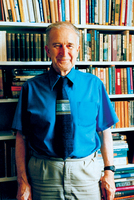
This is perhaps understandable given what he experienced during family visits to pre-World War II Nazi Germany as a teenager.Īlthough Flew departed from the Methodism of his childhood, he remembered his theologian father’s advice to follow the path of wisdom and also Plato’s dictum ‘to follow the argument wherever it leads’. Indeed, he went so far as to describe his book, God and philosophy (Flew 1966), as a historical relic! He admits that he embraced atheism too quickly in the light of the problem of evil. Here we learn why he found it necessary to abandon many of the views he had previously expressed in support of atheism. In There is a God: how the world’s most notorious atheist changed his mind, Flew traced in a little book his journey from adolescent atheism and Marxism to deism. Given the triumphalism exhibited during the recent Global Atheist Convention, a reflection on Flew’s defection from atheism is worth undertaking. 74 1), something that sent shock waves through the atheist world! But it showed that atheists sometimes do change their minds.

John Pilbrow reflects in this review, on one philosopher’s pilgrimage from unbelief.Ītheism, onus of proof, laws of nature, existence, fine tuning, multiverses.Īt the beginning of a public debate at New York University in May 2004, one of the world’s most notable atheist philosophers, Antony Flew (1923– 2010), announced ‘that he now accepted the existence of a God’ (p. This review first appeared as an article entitled ‘The philosopher who flew the atheists’ nest’ in The Melbourne Anglican, July 2012, p.22, and is reproduced with permission.Īntony Flew’s courageous abandonment of atheism in the last six years of his life demanded much of him, as it does of us.

Review of Antony Flew’s book ‘ There is a God: how the world’s most notorious atheist changed his mind‘Īnthony Flew with Roy Varghese There is a God: how the world’s most notorious atheist changed his mind


 0 kommentar(er)
0 kommentar(er)
